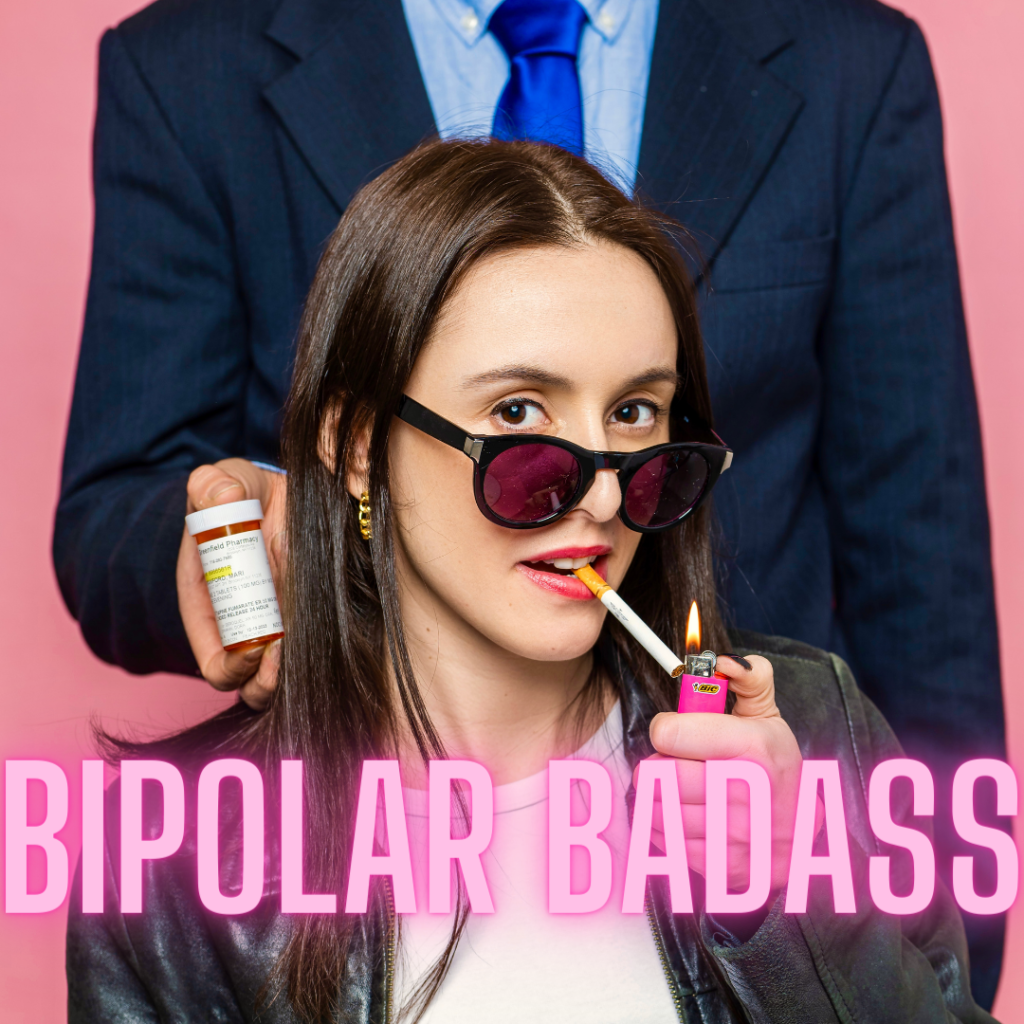
Bipolar Badass is a one-woman show by New York City artist Mari Crawford. It is a dark comedy about her experience getting diagnosed with Bipolar Disorder.
I didn’t know how my piece would be received by the Fringe audience. Late nights at rehearsal studios in Manhattan and sleep deprived work days filled my time, in the hopes that I could bring a solid piece of art to the Edinburgh Fringe. The studio I rented space from in Manhattan was pretty empty on weekday nights, so I would sneak into the much larger rooms that I did not pay for. I would always eventually get walked-in on by one of the people that worked there and asked to go back to my smaller room. But as long as I had a solid hour or two in there, it was all I needed. Every free moment I had I was either in a rehearsal studio or the New York Public Library. I had even become friendly with the security guards there after a certain point. I had grown to really miss my regular weekend warehouse dance parties with my friends.
All this to say, despite how hard I had worked, I didn’t know what to expect. I make myself extremely vulnerable in Bipolar Badass. I go to some of the darkest moments in my life to tell my story. I always preface describing my piece stressing that it is a dark comedy, it did originate from a stand-up routine, then turned into something more theatrical. I believe difficult things are always more digestible through humor. I do have a very dark sense of humor, but that is the personality I bring to my piece.
Being open about my diagnosis on stage in New York City, I always worry about what people really think of me. Not just a surface “great job” after a set. I always wondered if disclosing my diagnosis on stage would make people less inclined to want to know me. I was so self conscious about a clip I had posted talking about how Bipolar is a disability. Would someone see that and write me off? Would I be deemed as crazy and would someone’s initial perception of me completely change? Would me talking openly about self harm and debilitating depression completely wreck someone’s positive view of who I am? Would me saying I have a disability on stage have absolutely no pay-off and scare people away from me? Was it worth it to do a complete 180 and go from not even telling my closest friends about the intensity of my past with the disability to talking about my worst moments on stage?
“When my psychiatrist gave me my diagnosis she said: Okay so you have bipolar disorder, it’s chronic, potentially lethal, and just to reiterate the definition of chronic is that it will never go away. Talk about ripping off a bandaid!” I joke about Bipolar being chronic in the show, and as much as I intend on making that funny, it is my life. It’s something I need to reckon with. And frankly, absolutely terrifies me. It’s difficult to reckon with not being able to trust what places my mind may take me in the future that I don’t want to go to.
The exact thing that I was self-conscious about, disclosing my most vulnerable, terrifying truth, is precisely what I have been recognized for at this festival. I feel like I have been received with open arms by publications like the Neurodiverse Review, some industry professionals, BBC WorldWide who reached out to include me in their piece on shows dealing with mental health, and the audiences who come to my show. Countless people have come up to me after my show, thanking me for being so vulnerable and brave. I don’t intend for these examples to come off as me sounding self-indulgent or vain, I intend for them to exemplify that what my reality came to be is so much better than I had imagined. I say this to my younger self, and everyone like her who greatly struggles with mental illness. If only I could turn back time and meet her now, I would tell her how this would be received, that she doesn’t need to be so scared, that it is going to be very hard for a few years but she will eventually get through the worst part, that her scary diagnosis is nothing to be afraid of, and that her fear of the world “bipolar” is based off of what society has deemed that word to be, but that’s not what it has to be for her.
This is a difficult path that many people walk alone, out of fear that disclosing their chronic diagnosis will change how people think of them. I believe that the more openly we talk about it, the more people will understand, and the less we will need to walk alone, out of fear of being truly seen. And then, we can begin to feel brave for making ourselves vulnerable and disclosing our truths. Because if you deal with mental illness on a day-to-day basis, and you’re still alive, you are by default a certified Badass.
Further Edinburgh Fringe info and booking here.


















































